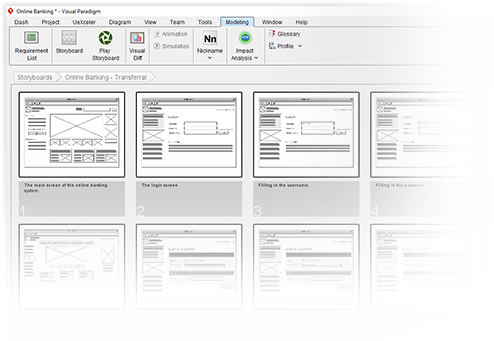Storyboard for Better User Experience (UX)

Over the years, websites and applications have evolved to become more and more complex. In order to deliver a better user experience to end user, user experience design (UX design) has become increasingly important. One of the most effective method in UX design is storyboard.
→ Try it free
-
Showcase design through scenarios
Effectively create story telling scenarios to portray your screen designs.
-
Maximize real time experience
Confirming both the end user and development team knows what has to be done. Identifying possible issues and exploring for solutions.
-
Interactive visual presentation
Present your storyboard following its scenarios. Get constructive feedbacks to help improve your customers' satisfaction.
No registration is required for 30-day trial.
